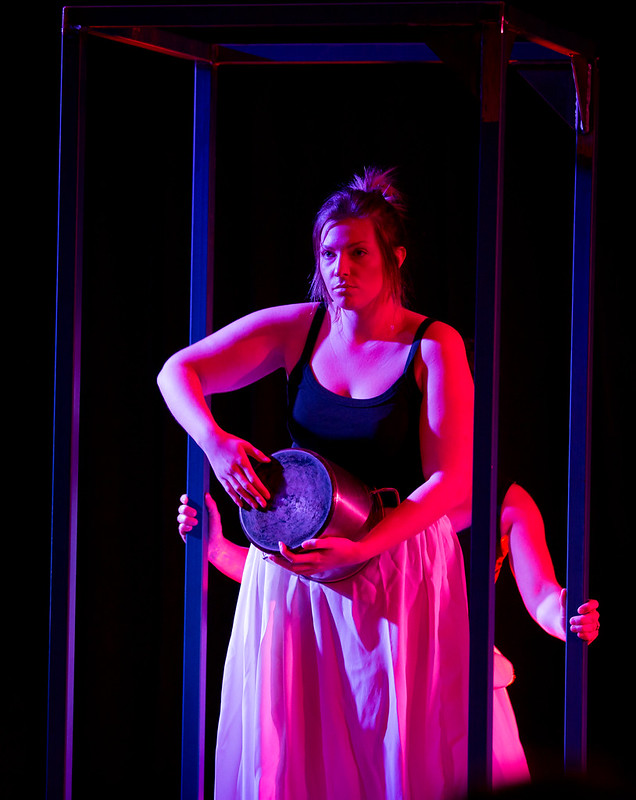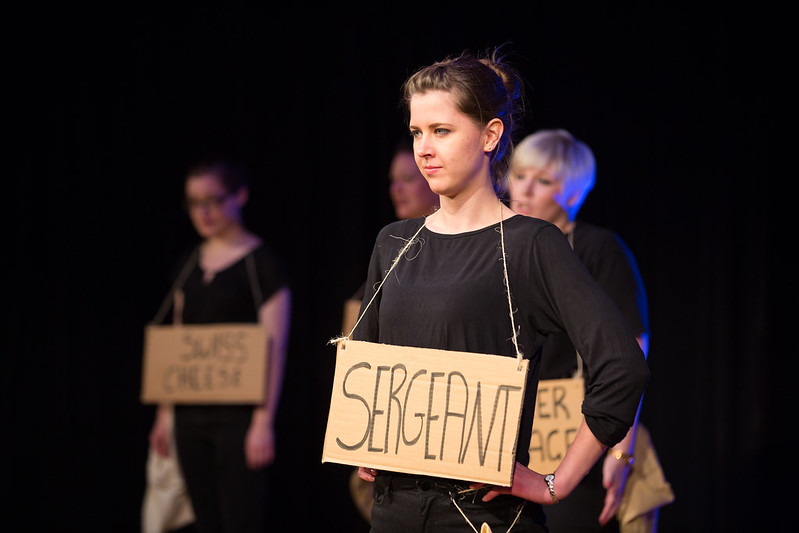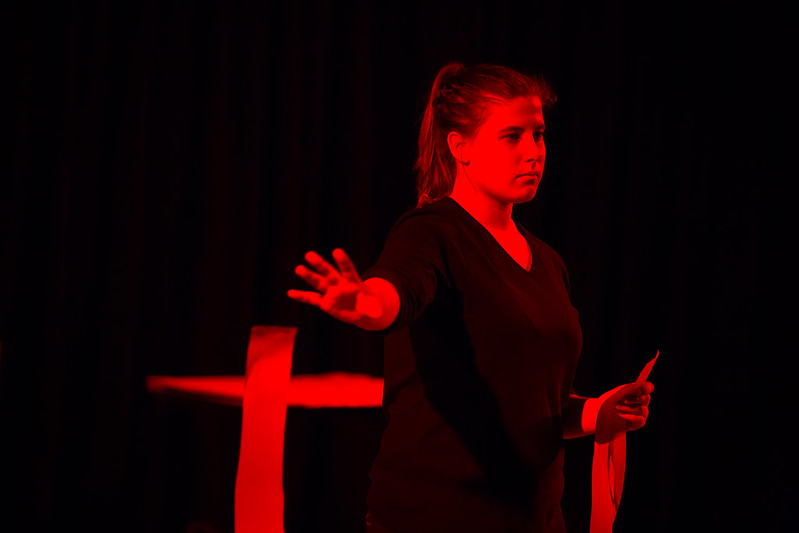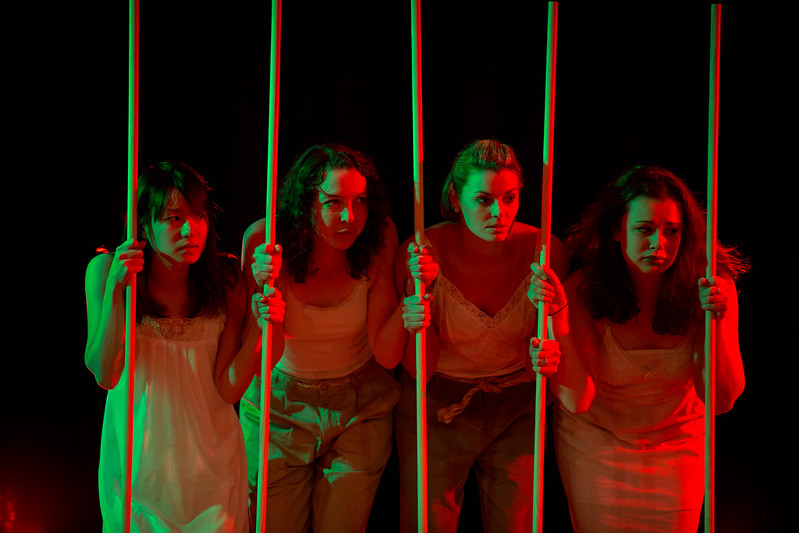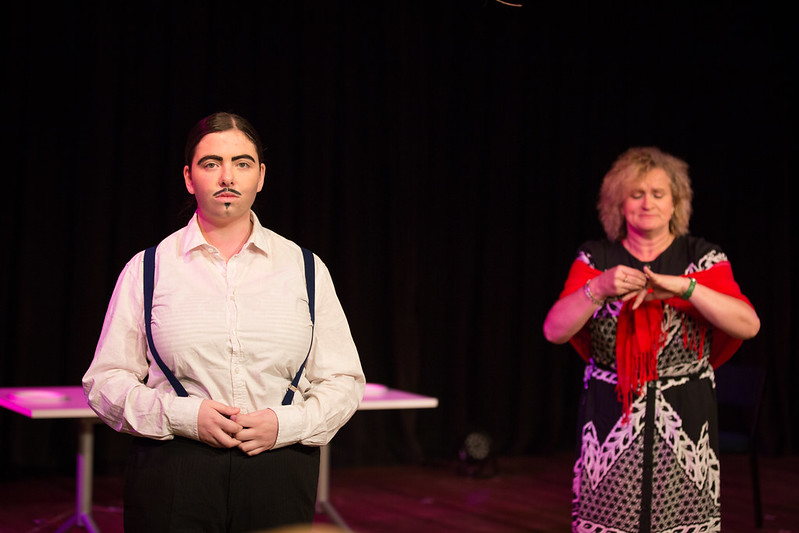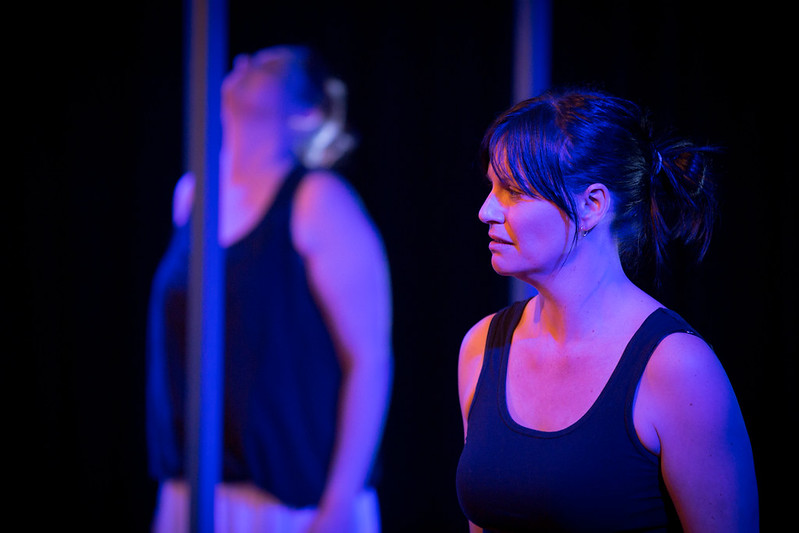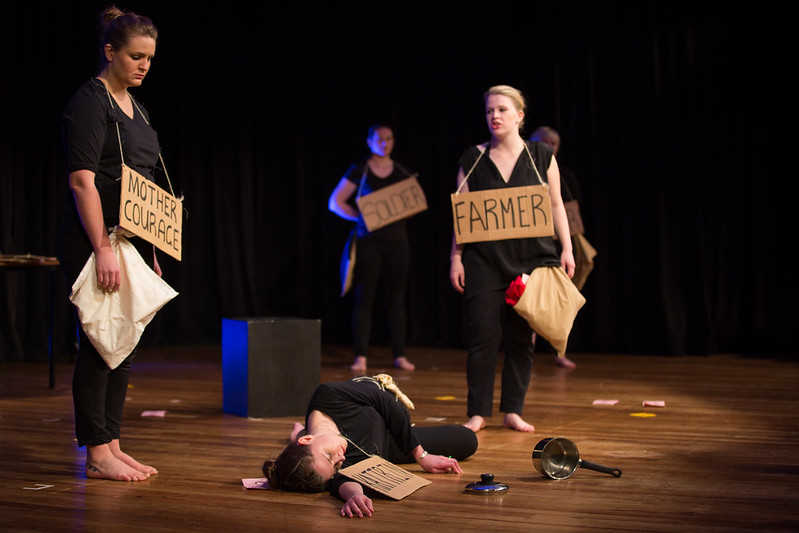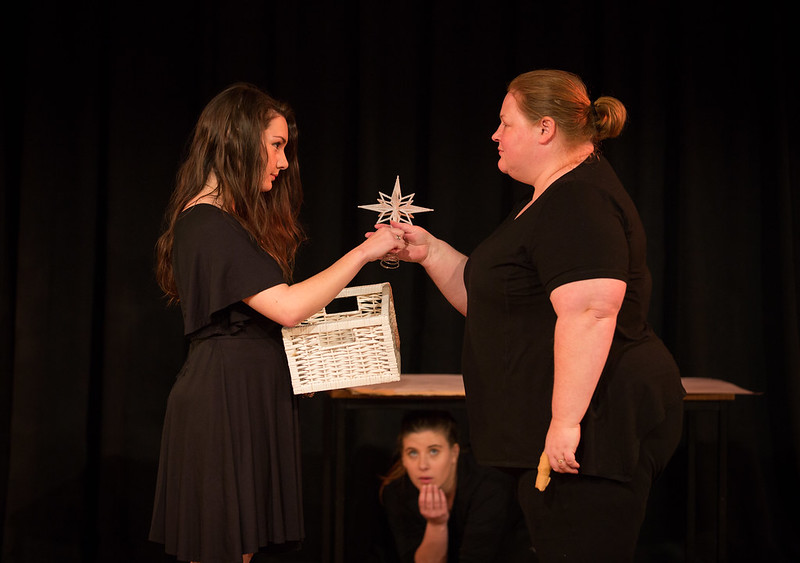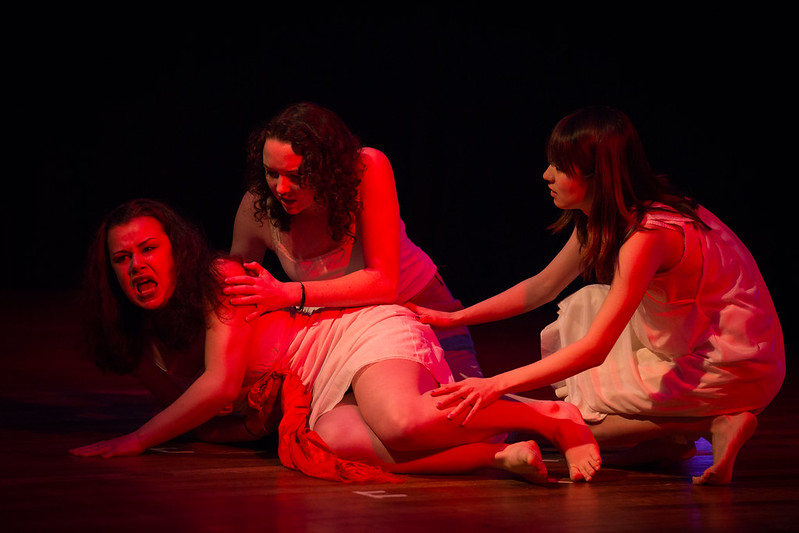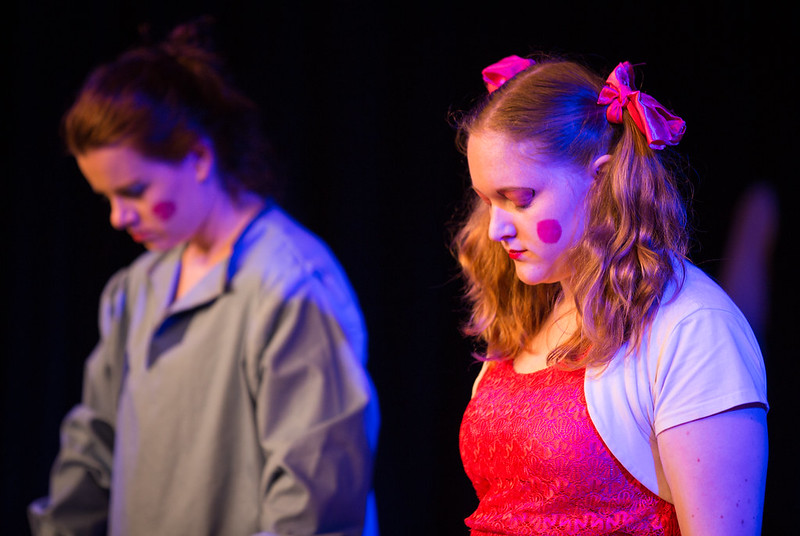 Nga mihi nui o te tau hou! Best wishes for the New Year!
Nga mihi nui o te tau hou! Best wishes for the New Year!
Whew! We got so busy at the end of 2014 we neglected to post our last quarter English & Media Studies research roundup! We had lots of activity going on, with successes among both staff and postgraduate student researchers, so here are some of the end-of-year research highlights to celebrate our farewell to 2014. We are looking forward to a massive year of more vibrant and diverse research in 2015.
Our interests span the gamut of fiction, nonfiction, media studies, creativity, theatre, poetry, communication and cultural studies (such as work on race, gender, and power). If you are interested in joining us for postgraduate studies, please do make contact – either chat to a staff member whose area of research intrigues you, or get in touch with the postgraduate coordinator Dr Jenny Lawn.
Did you know that in 1991 our own Dr Brian McDonnell came second in New Zealand Mastermind on TV with the specialist subject of ‘The Major Novels of Graham Greene’? Greene was however not only a major novelist, but also a crime-fiction writer, film critic and scriptwriter. For his scriptwriting on the 1949 Carol Reed-directed cinema classic ‘The Third Man’ Greene has been termed one of the founders of European film noir. Brian is currently researching a book on Greene’s relationship with film noir, and in September he presented some early findings in a conference paper titled “Graham Greene and Film Noir” at the international Graham Greene Festival in London, as part of an overseas research trip. Brian is gathering data about Greene at archives in the University of Texas Austin, Boston College, Georgetown University and the British Film Institute.
Associate Professor Angie Farrow won ‘Best Drama Script’ for her new play ‘Leo Rising’ at the Auckland Short and Sweet Festival in September 2014. Directed by James Bell and starring Pippiajna Tui Jane as a grieving jilted bride, Sharleen, the 10-minute monologue follows Sharleen through city streets searching for her AWOL groom and ultimately discovering an unexpected route to revenge. Then in December, Angie launched her book ‘Falling, and other short plays’ at Palmerston North City Library, followed by the launch of a taster season of the plays at the Globe Theatre, Studio 2, Palmerston North. Titled ‘Together All Alone’ and directed by Rachel Lenart and Jaime Dorner, the ‘taster’ showcased the plays: “Goodbye April”, “Leo Rising”, “Happiness”, “The Perfect Life”, “The Real Thing” and “The Body”, works which take a fresh and innovative look at some of life’s quintessential questions and experiences.
Dr Philip Steer won the Massey University emerging researcher medal in December 2014! In November he published an article that broadens our understanding of the conditions that shaped nineteenth-century New Zealand literature. Titled “Antipodal Home Economics: International Debt and Settler Domesticity in Clara Cheeseman’s A Rolling Stone (1886)” Philip’s article appeared in the edited collection Imagining Victorian Settler Homes: Antipodal Domestic Fiction (edited by T. S. Wagner. London: Pickering & Chatto, 2014. 145-160). Philip argued that New Zealand’s credit crisis of the late 1870s and the subsequent severe recession had a profound effect on the stories that colonial writers told. He made the case that Cheeseman’s A Rolling Stone—previously dismissed as a typical (and worthless) example of melodramatic domestic fiction—is actually a very good example of the hidden depths in our colonial literature: it explores ideas of debt and reputation in a range of ways that illuminate the dependence of colonial domestic life on international credit flows. Also in November, Philip gave a presentation titled “A Provisional Survival Guide for the Early Career Researcher,” at the Ka Awatea conference in Palmerston North. Philip shared his experiences successfully navigating the early career labyrinth of publishing, funding, writing and juggling research and teaching, by way of a contribution to building Early Career Researcher capacity in College of Humanities and Social Sciences.
Congratulations to Dr Robert Redmond on his PhD completion. His thesis, “The Femme Fatales in Postfeminist Hard-Boiled Fiction: Redundant or Reinventing Herself?” was supervised by Dr Doreen D’Cruz and Dr Jenny Lawn. Robert’s research explored the evolution of the ‘femme fatale’ from the ‘hard-boiled’ version of the late 1920s, who “seduced, shot and poisoned her way through pulp magazines, hard- and paper-backed novels, and films for almost fifty years” to new representations of the dangerous woman in the 1980s, in the form of the tough female detective. To what extent, Robert asked, do the changes subvert masculine hegemony and allow for a new female imaginary, and to what degree are new forms still coloured by the old? If you are interested in reading more, you can download Robert’s full thesis at the Massey online research repository: http://mro.massey.ac.nz/handle/10179/5645
Well done to Associate Professor Lisa Emerson on signing a book contract with Parlor Press for a book on scientists as writers which is due out in 2015. Lisa notes that scientists are, to a large extent, a lost or forgotten tribe of academic writers. Researchers may examine scientific writing or observe and document how scientists write in the lab, but we still know little of how scientists think as writers – about their beliefs, attitudes and experiences of writing. Conventional wisdom suggests that scientists are poor writers, with little interest in, or enjoyment from, writing well. Lisa’s book will tell a different story. She has collected a series of stories, or literacy narratives, from scientists around the globe. These include stories of scientists reaching out to engage the public with science, scientists who moonlight as poets or playwrights, young scientists who are writing in a vast, supportive community of people who share a common passion, lonely scientists who struggle to write unsupported, reluctant writers who argue that words don’t matter, and passionate writers who would choose to write all day. “My aim in collecting these personal stories of scientists as writers is to help us to see scientists in new ways: as wordsmiths who, mostly, love to write, and who, above all, want to discover and communicate something new and exciting,” she said.
Lisa along with co-authors Ken Kilpin and Angela Feekery also had an article published in the journal English in Aotearoa (issue 83, pages 13-19) in November 2014. The article, titled “Information literacy and the transition to tertiary,” is part of a much bigger project about how students transition from Year 13 to tertiary study, and in particular, how they learn to write across this transition. Lisa and her team have been working with teachers from low-decile schools to teach students how to write and learn in ways that will prepare them for study at university or polytechnics. In the paper, Ken, Lisa and Angela suggest ways in which English teachers can teach literature while supporting students’ writing, information literacy, and development as independent learners.
Dr Ian Goodwin co-published multiple items during 2014 from a large multidisciplinary Marsden-funded research project looking at young people’s attitudes towards alcohol consumption, and their self-representations of drinking culture on social media. Some highlights of Ian’s peer-reviewed outputs from throughout 2014 included:
• Niland, P., Lyons, A. C., Goodwin, I. & Hutton, F. (2014/online May). Friendship Work on Facebook: Young Adults’ Understandings and Practices of Friendship. Journal of Community and Applied Social Psychology.
• Niland, P., Lyons, A. C., Goodwin, I. & Hutton, F. (2014). “See it doesn’t look pretty does it?”: Young Adults’ Airbrushed Drinking Practices on Facebook. Psychology and Health 29(8), 877-895.
• Goodwin, I., Lyons, A.C., Griffin, C., & McCreanor, T. (2014). Ending Up Online: Interrogating Mediated Youth Drinking Cultures. In A. Bennnet and B. Robards (Eds.) Mediated Youth Cultures: The Internet, Belonging, and New Cultural Configurations, pp. 59-74. Basingstoke, UK: Palgrave Macmillan.
• Griffin, C., Lyons, A.C., Goodwin, I. McCreanor, T., & Niland, P. (2014). Young Adults, Social Media Alcohol Marketing and the Culture of Intoxication in Aotearoa New Zealand, paper presented to Kettil Bruun Society 40th Annual Alcohol Epidemiology Symposium, Torino, Italy, 9-13 June 2014.
• Moewaka Barnes, H., McCreanor, T., Goodwin, I., Lyons, A.C., Griffin, C., Hutton, F., Niland, P., O’Carroll, A., & Samu, L. (2014). “So Drunk Right Now! Anybody Wanna Join?”: Young People, Alcohol and Social Networking Systems, paper presented to Kettil Bruun Society 40th Annual Alcohol Epidemiology Symposium, Torino, Italy, 9-13 June 2014.
• Goodwin, I., Lyons, A.C., Griffin, C., and McCreanor, T. (2014). Beyond ‘The Profile’: Multiple Methods in Facebook Research, invited presentation to the Australasian Audience Research Symposium (University of New South Wales), Sydney, Australia, 22 April 2014.
Ian also co-published a refereed article on ways in which heterosexual biases and assumptions marked the media coverage of the marriage equality debate in New Zealand: Goodwin, I., Lyons, A. C., & Stephens, C. (2014). Critiquing the Heteronormativity of the Banal Citizen in New Zealand’s Mediated Civil Union Debate. Gender, Place and Culture 21(7), 813-833.
Associate Professor Bryan Walpert had a creative non-fiction essay, “The Lazy Gardener,” published in the U.S. literary journal Rock & Sling in November. That is also, incidentally, the title of Bryan’s blog about life in New Zealand, which you can read at http://nzlazygardener.wordpress.com/
Dr Erin Mercer gave a fascinating seminar in the WH Oliver Humanities Academy series, recuperating the work of mid-20th-Century New Zealand writer Sylvia Ashton-Warner. While Ashton-Warner’s work sold extremely well overseas and received good reviews internationally, it was slated at home – Erin argues because of a lack of fit with a dominant tradition of masculinist nationalism in New Zealand literature. Here’s a link to Erin’s talk, titled “The Strange Cadences of Sylvia Ashton-Warner”: http://webcast.massey.ac.nz/Mediasite/Play/89300489315e4c8f9f4420bc12af384c1d
Also in the WH Oliver Humanities Academy series, Dr Ian Huffer gave an absorbing talk on ‘Film Consumption and New Zealand Society’. Drawing on data from the New Zealand Film Commission and NZ On Air, Ian mapped changes in consumption due to online access to movies, critically examining popular claims that open access ‘democratises’ the circulation and consumption of film. Online access differed by gender, income, age and other factors, Ian found, meaning consumption was not necessarily more democratic – watch his full talk at http://webcast.massey.ac.nz/Mediasite/Play/9bf1d98de33c41cabb7dc1b7c636d5f01d
Associate Professor Elspeth Tilley presented at the Ka Awatea conference at Palmerston North in November, discussing the participatory ‘citizen science’ project, ‘It’s My Life’. Entitled “It’s My Life Youth Smokefree Research Project: A tale of four colleges, 15 academics and 269 Massey students (plus some lives saved and a lot of lessons learned),” her talk covered both the processes of large team research and the outcomes of the 15-month by-youth, for-youth campaign. Survey research showed that the lifespan of the campaign coincided with changes in young people’s attitudes including increases in both their desire to quit and their anger at the tobacco industry. The Smokefree It’s My Life project also launched its world-first by-youth for-youth DVD documentary in November. The DVD was created by Bachelor of Communication Honours Summer Scholarship students Janaya Soma and Catherine Moreau-Hammond with technical support from Mark Steelsmith under the supervision of Dr Radha O’Meara and A/P Elspeth Tilley. (Readers who work with young people are welcome to request a free copy of the DVD by emailing teamsmokefree@gmail.com and one will be posted out to you. You can also download individual chapters from the It’s My Life website at www.smokefree-itsmylife.org.nz ).
In November, Dr Tyron Love, Associate Dean Māori, Department of Management, Marketing and Entrepreneurship, School of Business and Economics, Whare Wānanga o Waitaha University of Canterbury and Associate Professor Elspeth Tilley, School of English & Media Studies, College of Humanities & Social Sciences, Te Kunenga Ki Pūrehuroa Massey University Te Whanganui-a-Tara Wellington co-presented on “Temporal discourse and the news media representation of Indigenous- non-Indigenous relations in Aotearoa” to the WH Oliver Humanities Research Series. Their talk analysed examples of media coverage of important Te Tiriti o Waitangi negotiations and showed how non-Indigenous cultural assumptions moulded the debate in particular ways. You can view the talk at: http://webcast.massey.ac.nz/Mediasite/Play/d7271aea37764aec851f6884602d9a5e1d
Massey Master of Creative Writing graduate Carol Markwell launched her latest play ‘Alice, what have you done!’, published by Steele Roberts, in December. A gripping local murder-mystery set in Napier in 1915, the play chronicles the trial of Alice May Parkinson, who fatally shot her lover. Her trial and its aftermath cause controversy throughout New Zealand. Is she a feminist heroine or a callous killer … or simply a desperate woman who ran out of choices? See more at http://steeleroberts.co.nz/books/isbn/978-1-927242-60-5
EMS Senior Tutors Tim Upperton and Joy Green, together with Spanish lecturer Leonel Alvarado, read from their “Kete Series” poetry collections at public readings throughout November. The Kete Series is the brainchild of Palmerston North-based boutique publishers HauNui Press, which specialises in alternative, ingenious ways to produce and market local books. The three poets’ books were bundled together in a traditional woven harakeke bag or ‘kete’. Tim’s collection, titled ‘The Night We Ate the Baby’, was his second book of poetry. His first, titled ‘A House on Fire’, was published in 2009, and his poems have been published widely in New Zealand and international magazines and anthologies. He won the Bronwyn Tate Memorial International Poetry Competition in 2011, and the Caselburg Trust International Poetry Competition in 2012 and 2013. Joy’s collection was her first published book of poems. Titled ‘Surface Tension’, she has performed many of the poems in festivals and literary events, and has published her work in a number of anthologies in New Zealand, Australia, the United States and Europe. See more about the three poets and their work at http://www.massey.ac.nz/massey/about-massey/news/article.cfm?mnarticle_uuid=cd91f2ec-9d4e-c4a4-2584-6a4840966c7b
Congratulations to Master of Creative Writing graduate Janet Newman, whose poetry collection beach.river.always–written during her MCW–was runner up for the 2014 Kathleen Grattan Prize in December. Janet also won the Journal of New Zealand Literature Prize for NZ literary studies in October. Her winning essay, on the poetry of Michelle Leggot, was adapted from her Honours Research Report. Eight of nine judges placed Janet’s essay first (out of three short-listed entries).
Our Senior Tutor in Theatre, Rachel Lenart, was nominated for ‘Festival Director of the Year’ at the Chapman Tripp Theatre Awards in December. Her production called ‘Constellations’ was also nominated for ‘Production of the Year’, best musical composition and two nominations for best acting. The Dorothy McKegg Actress of the Year award was taken out by Erin Banks for her work in Constellations.
EMS PhD student Angie Enoka presented her research on a media analysis of the Pacific Temporary Workers Scheme coverage to the Pasifika @Massey Annual Research Conference in November. Angie also participated as a ‘Volunteer Service Abroad’ contributor, providing pro bono media communication strategy, in Samoa at the United Nations Conference on Small Island Developing States, in September 2014, and was successfully confirmed in her PhD candidature in October.
EMS staff and students from the creative writing program worked very hard to successfully host ‘Minding the Gap: Writing Across Thresholds and Fault Lines’, the Australasian Association of Writing Programmes (AAWP) 19th Annual Conference 2014, 30 November- 2 December at Massey University in Wellington, with keynote speakers Hone Kouka, Emily Perkins, and Martin Edmond. Conference Organising Committee members from Massey were Dr Ingrid Horrocks and Dr Thom Conroy, with conference assistance from Nick Allen, Dr Hannah Gerrard, Shazrah Salam, Thomas Aitken and Lena Fransham (all Massey University). The AAWP was established in 1996, and is now the most important forum in Australia for discussing all aspects of teaching creative and professional writing as well as for debating current theories on creativity and writing. ‘Minding The Gap’ is only the second AAWP conference to be held in New Zealand. The new Poetry New Zealand journal (edited by Massey’s Dr Jack Ross) was also launched at the conference.
Following on from the conference, Dr Ingrid Horrocks co-convened, with Cherie Lacey, the ‘Placing the Personal Essay’ Colloquium. Supported by the W.H. Oliver Humanities Research Academy at Massey University, the Centre for Research on Colonial Culture at the University of Otago, and the Stout Research Centre for New Zealand Studies at Victoria University, the colloquium brought together writers, historians, literary critics, cultural theorists and interested others for a discussion about new ways of writing about place in contemporary New Zealand. It featured Martin Edmond, Tina Makereti, Ian Wedde, Lydia Wevers, Alex Calder, Tony Ballantyne, Alice Te Punga Somerville and others. See more detail at: http://placingthepersonalessay.weebly.com/
In December the Visiting Artist scheme announced that Jaime Dorner has been appointed to direct the 2015 Summer Shakespeare offering of King Lear. We look forward to a fabulous season of this most powerful work!
Associate Professor Elspeth Tilley published a team-authored article about immunisation communication in November in the journal Media International Australia: Tilley, E., Murray, N., Watson, B., & Comrie, M. (2014) New views on a ‘stuck’ issue: Communicating about childhood immunisation in Aotearoa New Zealand. MIA Issue 152 (2014). The article explores the value of qualitative and participatory research methods in shedding new light on the issue of declining immunisation rates.
Research into the Bachelor of Communication graduate outcomes found that employment data from all graduates of the Bachelor of Communication since its inception as a degree, shows a 96% employment rate. The research was conducted by Associate Professor Elspeth Tilley, Malcolm Rees, Judith Naylor, Professor Frank Sligo, and Dr Raquel Harper, as part of a SIF project led by Dr Jenny Lawn. Further analysis of the data is ongoing and more results will be released during 2015. In general they show very positive employment results for Bachelor of Communication graduates, and for many a fast track to more senior positions in the years after graduation.
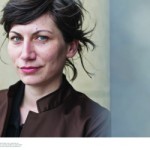

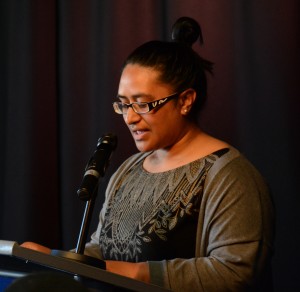
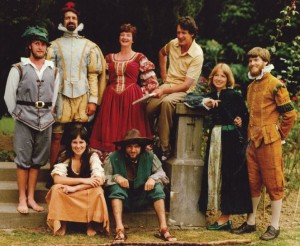
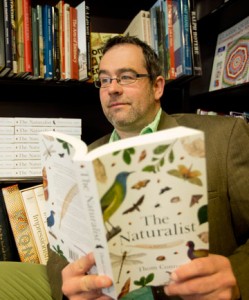 More high praise for Thom Conroy’s best-seller The Naturalist – see the Booksellers’ blog at
More high praise for Thom Conroy’s best-seller The Naturalist – see the Booksellers’ blog at 